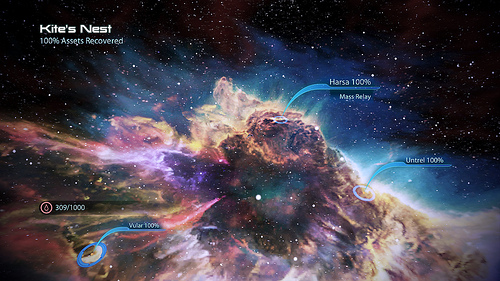Over the past few months, I’ve been doing a Let’s Play of Mass Effect 3. I felt this was the best time to do that Let’s Play, with the impending release of Mass Effect Andromeda. We also have some time and distance from the initial controversy over Mass Effect 3’s ending, and the second wave of controversy over the “Director’s Cut”, which meant that I could approach the game fresh, without any of that baggage. So, how does Shepard’s final outing fare?
The final installment of the series has the Reaper invasion finally having arrived in the galaxy, after two games worth of warnings. Shepard and Liara learn of a weapon from the previous incursion of the Reapers – during the time of the Protheans – called the Crucible. Now, Commander Shepard must forge an alliance of alien races – council and non-council members alike, in order to stand against the Reapers.
From the standpoint of the game’s structure, this means that all the game’s quests, both on the main thrust of the story and in terms of side-quests, is all put towards the specific goal of preparing the crucible and going for one final push against the Reapers. This provides an incentive for taking on the side quests, as you need all the resources you can get, while also providing a sense of urgency.
This is heightened by the increasing presence of the Reapers in the galaxy. As you explore systems, you face an increased risk of attracting Reaper ships to that system. Once they show up, you have no choice but to run, and should you return to that system, the Reapers will return more rapidly, if not instantaneously, should you return. Further, as the game’s story goes on, the Reapers will start occupying more and more systems, meaning that there are less and less systems you can search for resources or to complete side-quests.
Additionally, the consequences of the major choices from earlier games have some repercussions here. some are more dramatic than others – saving the Rachni queen in Mass Effect 1 means that you can recruit the Rachni to help the war effort here. Recruiting Legion and completing his Loyalty Mission in Mass effect 2 means that you can broker a final peace between the Quarians and the Geth here. Even having some of the DLC characters from Mass Effect 2 on your side, like Kasumi and Zaeed can make a tremendous difference with how several quests turn out, and in turn what resources you get.
One of the more interesting party members you get in this game is one who is only available through DLC – Javik, a Prothean who was in cryogenic freeze. Javik has some interesting insights on how the galaxy has changed in the millions of years since his race’s demise, and as a character his story is incredibly well written, but it’s also somewhat optional.
Now, what is a little less optional is two of the pieces of DLC for the game – the Citadel and Leviathan DLC. The former provides some really impressive bonding for your party members, first as the party fends off an assassination attempt against Shepard by their evil clone, and then as you unwind after this with a house party in Captain Anderson’s apartment, which he’s loaning to you while he’s stranded on Earth leading the resistance against the Reapers. There’s a lot of really strong humor in the Citadel DLC, from the party members demonstrating their snarking abilities, to the house party basically providing a wonderful opportunity for these party members to bounce off of each other in various hilarious ways.
The Leviathan DLC, on the other hand, is much more serious, and enriches the story a little more – providing a clear explanation of where the hell the Reapers came from, why they have that form, and what their purpose is. It also makes the revelation in the game’s conclusion feel less like it came out of nowhere, and makes it feel earned. There are some really exciting elements in this DLC, and it makes for a really interesting mystery that ties in well with the rest of the story, which also has some really fun and creepy sequences.
As far as the revised ending goes, going in without having experienced the original ending, the director’s cut ending felt tonally consistent with the rest of the work. While on the one hand, I get the argument that changing the ending of the work based on popular complaint feels like a pronounced and dramatic artistic compromise, this isn’t the first time something like this has happened with a major popular artistic work. Sherlock Holmes was resurrected after people objected to the conclusion of The Final Problem, and Holmes death therein. Even Douglas Adams was working on a new Hitchhiker’s Guide to the Galaxy novel at the time of his death, after fans stated their reservations with the end of the final book Adams wrote in that series – and after Adams himself admitted that he was in a bad head-place when he wrote that book. So, I can’t fault Bioware rethinking the ending.
So, Mass Effect 3 felt like a satisfying conclusion to the original Mass Effect trilogy, though one that changes the galaxy in such dramatic ways that I completely understand why they moved the next installment to another galaxy. I’m glad that Andromeda is taking the story where it is, and I’m interested in seeing how it goes from there, and should they choose to revisit the end-state of this galaxy, being in Andromeda provides a lot of freedom on how they can handle that.
That said, Mass Effect 3 is not the best entry point to the series – either Mass Effect 2 or Andromeda would probably make for better options for where to jump in.
Mass Effect 3 is available from Amazon.com.

